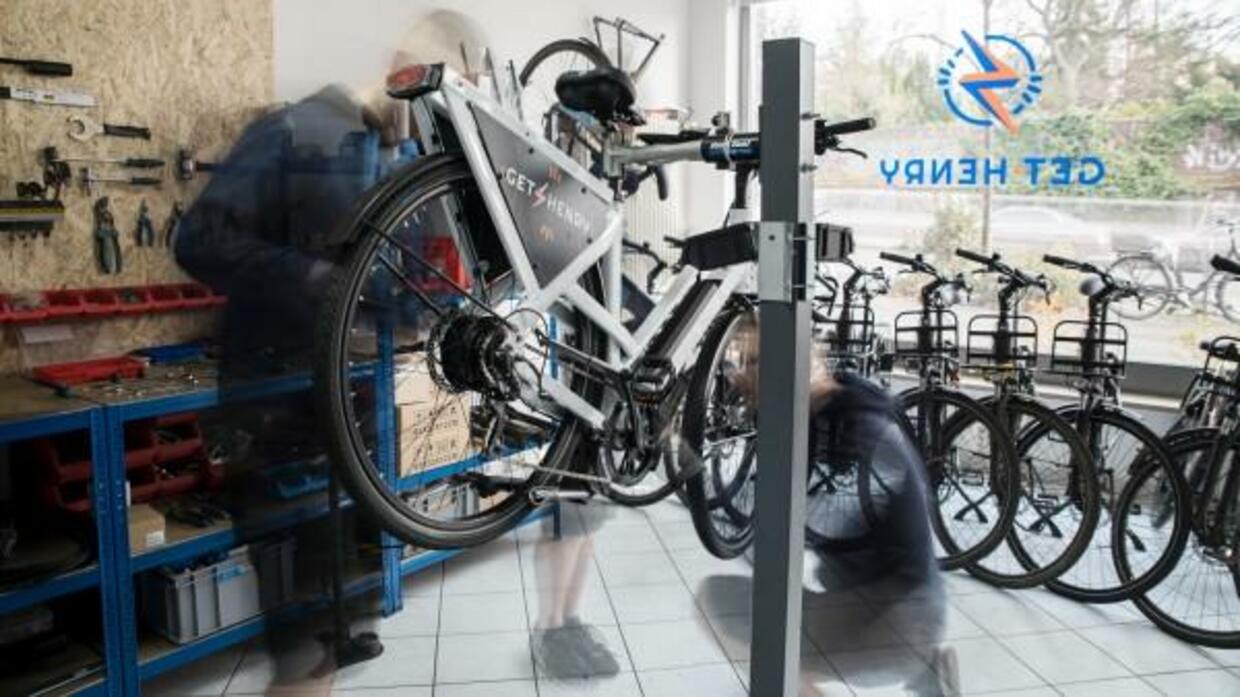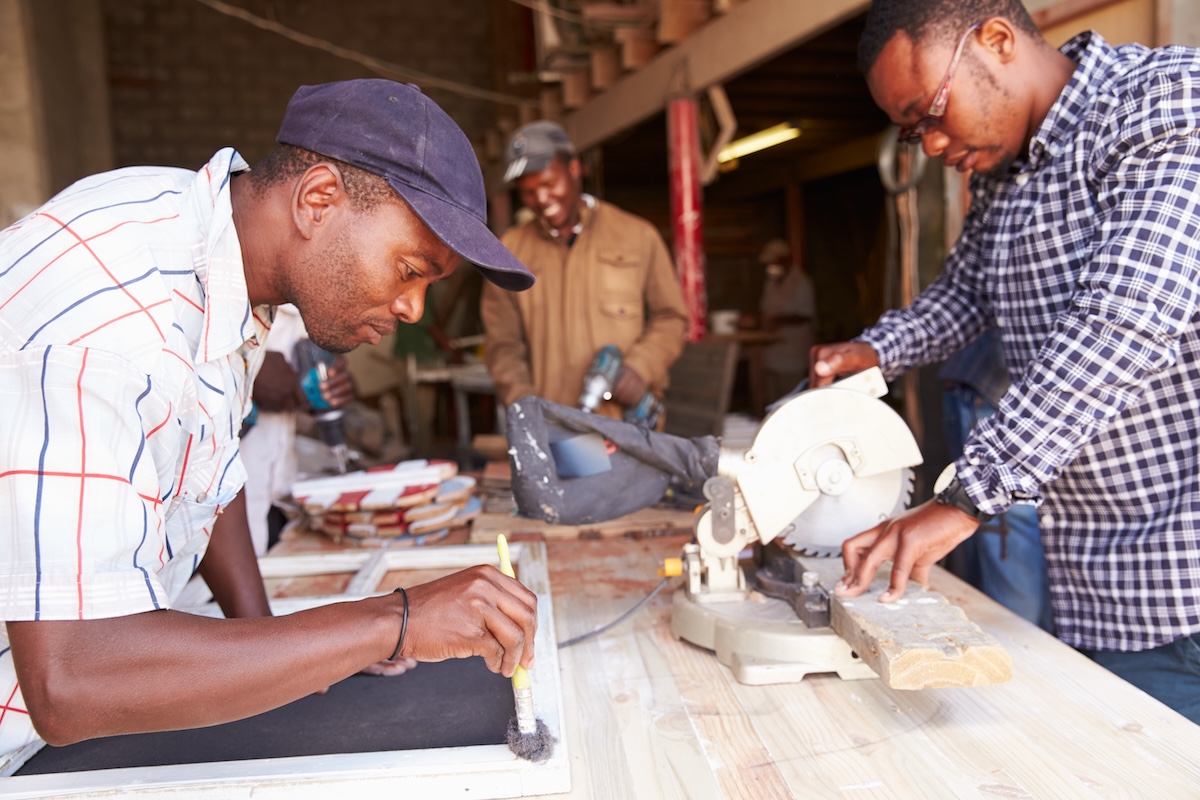Talent. Customers. And specialization. Transition-friendly policy and sentiment are helping set the European Union apart as a hub for climate tech.
My colleague Shilpi and I recently got back from six weeks in the United Kingdom, European Union, and Israel and over 70 meetings with limited partners, founders, and advisors, which provided a great opportunity to learn.
Among the startups we met: Berlin-based Carbon One, which makes methanol without fossil fuels, for example using carbon captured from air. Oxyle, in Zurich, makes water purification filters that work with contaminants like microplastics and drugs that have entered the water supply and currently can only be treated via incineration. And Israel and US-based Earthforce, which is developing a solution to mitigate wildfire risks.
Policy divergence
Climate policy in the U.S. and E.U. is sharply diverging. One way to see this is to compare public market stock prices for companies affected by climate-transition risk. E.U. firms are flat or down. Their U.S. counterparts are up – in some cases, quite a bit. You can see why.
In the U.S., at the federal level, we’re going backward, with climate legislation stalled and a Supreme Court taking us back in time, including placing limits on agencies such as the Environmental Protection Agency. Even at the local level, states like Texas are trying to punish banks for divesting from fossil fuels, meaning we’re going back to where we were when we first started Third Sphere – cities and states will lead the way on climate policy again.
In the E.U., green parties now play much more important roles in the largest economies, such as Germany’s. This leads to actions such as agreeing to phase out fossil fuel cars by 2035. And public sentiment is clear. You can and will be shamed for flying when you can take an electric train powered by wind.
Maturing markets
The E.U. will be one of the more strategic regions where climate tech teams will find customers and talent.
Diverging policy and sentiment drive varying customer demand. Real estate portfolio owners in the E.U. are looking for ways to decarbonize fast and electric vehicle ownership is growing rapidly from one set of wheels to many. The soon-to-be-shipping electric pickup truck in the U.S. just doesn’t account for the growing difference in adoption. Then there are industrial processes – multiple U.S.-based companies in our portfolio see clear signals of growing early adopter demand from the E.U.
And then there is talent. E.U. founders who might have moved to the U.S. even a few years ago are now choosing to remain in places like Zurich, Berlin, and Copenhagen. Their local venture ecosystems have grown with the growing political uncertainty in the U.S.
Finally, regional climate specializations are emerging. For most climate investors, the scale and scope of the hardware required is often overwhelming, but this plays to the strengths of founders who have spent time in German manufacturing. In the Nordics, Copenhagen is a few years from being a net-zero city – and being a few years ahead of everyone else in areas such as electrification and decarbonization means you have some advantages in anticipating what others might need.
Our E.U.-based portfolio companies include Berlin-based Henry Mobility, which builds e-bike fleets for delivery and logistics firms in markets like Germany, Australia and Italy. For a monthly fee, couriers or fleet customers get access to a delivery bike as well as insurance and guaranteed “uptime.” This gives customers a predictable service as a fixed cost and they avoid any issues related to technology or maintenance risks.
Another portfolio company, Zurich-based Pallon, uses machine vision to automate inspection of key infrastructure like water and sewer pipes to reduce leaks and flooring from infrastructure failures.
We’ll likely make more investments in the E.U., but we’ll also be looking to help our existing portfolio companies figure out how to enter E.U. markets as customer demand ramps up.
Already, teams are working across both regions. South Burlington, Vermont-based Resonant Link, for example, makes low cost, high efficiency wireless chargers. Among other benefits, this allows vehicles like buses or lift vehicles to charge frequently and opportunistically, which reduces pack sizes. This reduces the cost of the vehicles and speeds up electrification.
New York-based Toggle automates production of module concrete structures like foundation footings used in utility solar or light rail. The approach speeds up projects, reduces costs and drives down concrete use because more efficient rebar shapes can be easily produced.
Supply chains
Some of the most valuable climate tech companies will be hardware companies, and they all have varying levels of exposure to supply chain risks for both their scope 3 emissions and resilience.
For supply chain resilience, we’re seeing a continued shift to “China + 1,” where companies, including very early-stage startups, will source from China while also ensuring they have another potential supplier. One noticeable change is a major shift to Japanese suppliers and, while it’s still anecdotal, we’re seeing startups travel to markets such as Germany and Switzerland in search of specific expertise and components.
At the policy level, most countries are reassessing their supply chain strategies, which is good for resilience and combating inflation. The exception may be most African nations, which already do four times trade with China vs. with the U.S. They’ll likely continue to source their next-generation infrastructure from China, including wind, solar, batteries, and electric vehicles.
We’re also keeping an eye on hardware finance. “Buy now, pay later” is already helping accelerate areas such as electrification with the adoption of everything from e-bikes (also, at one point, stationary bikes) and Onewheels to low-emissions heating and cooling. But there are already signs that a buy now, pay later reckoning is underway.
Shaun Abrahamson is managing director at Third Sphere.











